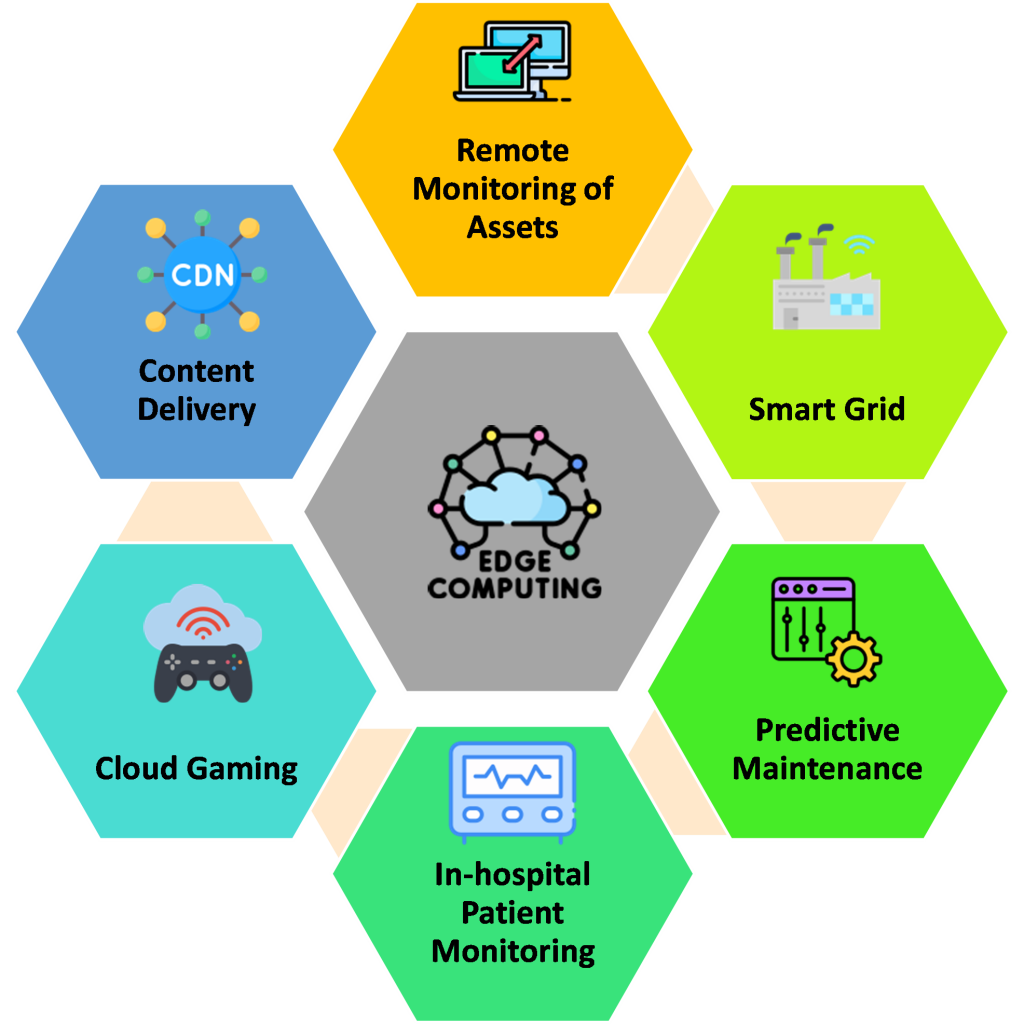Highlights
- AI and ML technology are becoming an integral component of IT infrastructure.
- AI adoption efforts must be complemented by more regulation and collaboration globally.
- Quantum computing is enhancing the efficiency of drug discovery efforts.
- Edge computing enables faster insights, lower latency, and enhanced security.
- Extended Reality (XR) is revolutionizing medical training, patient care, and surgical simulations.
- AI-powered threat detection systems and blockchain technology will be the state-of-the-art in cybersecurity technology.
“Any sufficiently advanced technology is indistinguishable from magic.”
Arthur C. Clarke
Transformative technology trends in 2024 , which look quite like magic, are bringing about significant changes in the Information Technology (IT) landscape. From intelligent automation powered by Artificial Intelligence (AI) and Machine Learning (ML) to the decentralized power of edge computing, these innovations are redefining possibilities within IT infrastructure. This blog curates a list of pivotal technology trends 2024 will witness and examines how they are poised to shape the future of IT and drive innovation across various industries.
AI and ML: Pioneering the Era of Intelligent Automation
The year 2023 marked the proliferation of open-source foundational Generative AI models such as Meta’s LlaMa family of large language models (LLMs) and other significant models such as StableLM, Mistral, and Falcon. As a key technology trends 2024 will see, the fields of AI and ML will continue to advance as the open-source community develop more datasets and fine-tune the models. AI and ML technology are becoming an integral component of IT infrastructure, powering everything from predictive analytics to autonomous systems. Organizations are leveraging AI and ML to streamline processes, optimize operations, and unlock valuable insights from vast amounts of data. Experts indicate that the transformative effects of AI in the enterprise scenario will be experienced in another three years.
Most enterprises that adopt generative AI aim for increased efficiency, improved productivity, and cost reduction rather than for innovation and growth. According to a Deloitte survey, 56% of the organizations surveyed are currently aiming at achieving tactical benefits such as improving efficiency. Only 19% of the organizations targeted innovation and growth.
Thus, generative AI is expected to be a major trend with tremendous benefits to the enterprise sector. However, the preparedness for generative AI is a formidable challenge. Enterprises need to focus on their preparedness in the critical realms of talent, governance, and risk. The adoption efforts must be complemented by more regulation and collaboration globally.
Quantum Computing: Unleashing the Power of Quantum Supremacy
Quantum computing has made significant strides in the recent past. It has evolved as one of the major technology trends in 2024. Various companies and research institutions are actively deploying and exploring its potential across different industries, particularly in the IT and Healthcare sectors.
In the field of drug discovery, quantum simulations can model molecular interactions with high accuracy, accelerating the development of new drugs. For instance, researchers from Imperial College London, in partnership with Zhejiang Lab and the University of Science and Technology of China, successfully developed a programmable Gaussian boson sampling light quantum processor called “Abacus“. They effectively applied this advanced processor to two essential drug design techniques: molecular docking and RNA folding prediction.
By 2024, enterprises will adapt key quantum computing trends such as quantum computing as a service, quantum cryptography, quantum machine learning, and quantum sensing technologies. Quantum tools will find strategic adoption in medical and drug research, environmental monitoring, geological exploration, cybersecurity, and big data analysis.
However, the advent of quantum computing can give rise to advanced cyberattacks. Enterprises in the cybersecurity and cryptography business are preparing to safeguard their data and IT infrastructure against such advanced attacks. For instance, Eviden, a subsidiary of Atos, announced the evolution of its digital identity management products. This product evolution will enable customers to prepare for the impending revolution. In addition, It will allow them to develop strategic cybersecurity solutions and gradually build trust in post-quantum algorithms.
QuSecure, Inc. recently introduced QuProtect Core Security. It is aimed at bolstering the security of existing Cisco router-to-router communications against the looming threats posed by quantum cyberattacks. Utilizing advanced crypto-agile post-quantum cryptography, QuProtect Core Security provides a seamless and robust security layer. It offers top-tier protection for vital network infrastructures of enterprises, government agencies, and telecommunications providers
Edge Computing: Bringing Processing Power to the Edge of the Network
With the rise of IoT and real-time connectivity, traditional cloud computing architectures face limitations in latency, bandwidth, and security. In sectors such as healthcare, automotive, and industrial automation, real-time data processing at the edge is enabling new use cases and unlocking unprecedented efficiencies.
The Worldwide IDC Global DataSphere Forecast, 2023-2027 reports that 157 zettabytes of data will be generated in 2024. Interestingly, 20% of this data is estimated to be generated at the edge. Edge computing brings processing power closer to the data source, enabling faster insights, lower latency, and enhanced security. Organizations are rapidly adopting edge solutions to meet the demands of today’s data-intensive applications. For instance, Akamai offers a host of edge computing solutions to bring applications closer to users. The company’s EdgeWorkers technology enables end-users to write and deploy code at the edge without infrastructure or new languages required.
However, edge computing does have some headwinds. As edge assets are distributed, companies often have difficulties in the sustainable maintenance of these assets. Security concerns also loom where edge assets are located in public spaces. Hackers and other threat actors target edge assets more.
Amidst these challenges, the growth of edge computing as a major technology trend in 2024 is promising. Edge devices with more computing power are being introduced. For example, Apple introduced M3, M3 Pro, and M3 Max chips that pack more computing power with improved speed and efficiency. Thus, edge computing has evolved as a key technology trend in 2024.

Extended Reality (XR): Blurring the Lines Between the Physical and Digital Worlds
Extended Reality (XR) is the convergence of virtual reality (VR), augmented reality (AR), and mixed reality (MR). It helps create immersive experiences that exceed the boundaries of space and time. XR will have applications across diverse industries, from entertainment and gaming to healthcare, manufacturing, and education, marking it a major technology trend in 2024.
In the healthcare sector, XR is revolutionizing medical training, patient care, and surgical simulations. Surgeons can now practice complex procedures in a virtual environment, reducing the risk and cost associated with traditional training methods.
In manufacturing, XR reduces resource consumption and provides valuable training solutions. Thus, it helps enhancing operational efficiency. For instance, Autoliv China, a manufacturing innovator, collaborated with Microsoft and DataMesh to implement digital twin technology, 3D data visualization, and AI in their operations. The company created a next-generation digital twin platform using Microsoft’s HoloLens 2 headset. It allows for immersive interaction, training, and remote collaboration.
In the Education sector, XR is transforming the way students learn and engage with course material, offering immersive experiences that cater to diverse learning styles. For instance, researchers at IIT-Madras in India created an AR-based mobile app called Memory Bytes. This app provides an interactive AR experience of historical photographs, maps, and archival documents.
Innovations in Cybersecurity and Privacy: Safeguarding Digital Assets in an Era of Uncertainty
Cloud deployments account for nearly half of enterprise workloads and have been the primary focus of IT investments over the past decade. Hence, IT leaders are expected to prioritize both their physical infrastructure needs and robust cybersecurity strategies to enhance aging IT systems.
With growing technological advancements, there is a significant possibility of security risks. In an interconnected world where data generation is in abundance, cybersecurity and privacy are critical. Thus, organizations are facing a constantly evolving threat landscape, characterized by sophisticated cyberattacks, data breaches, and privacy concerns.
To address these threats, organizations are adopting proactive cybersecurity approaches. They leverage technologies such as AI/ML, and blockchain to detect, prevent, and respond to cyber threats in real-time. AI-powered threat detection systems can analyze vast amounts of data to identify patterns and anomalies indicative of a potential attack. Blockchain technology provides tamper-proof security for sensitive transactions and data storage. Moreover, organizations are implementing stringent privacy regulations such as the General Data Protection Regulation (GDPR) and the California Consumer Privacy Act (CCPA). These regulations help ensure compliance and protect the privacy rights of individuals. Thus, innovative cybersecurity initiatives are a critical technology trend in 2024.
Conclusion: Embracing the Future of IT
Technical advancements such as AI, ML, quantum computing, edge computing, XR, and robust cybersecurity initiatives are expected to the pivotal technology trends in 2024. They are poised to shape the IT landscape for the immediate future. These technology trends are driving efficiency, enhancing security, and creating immersive experiences across various industries. The major industries benefiting from these technologies include media & entertainment, automotive, manufacturing, and healthcare. These transformational trends are paving the way for a future where digital transformation enhances every aspect of business. These trends are opening up new possibilities and are driving progress.
Reach out to us for more such insights about the technology landscape with Netscribes Digital Transformation Solutions.
Based on insights by Prasad Kakade, Assisstant Manager.






